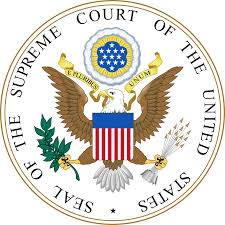
On Friday of last week, the Supreme Court issued its opinion in Trump v. CASA, Inc., which tackled the question of whether district courts may issue universal or nationwide injunctions. What are these and why should you care?
In most cases, the court just determines the rights of the parties named in the complaint. In contrast, in a nationwide or universal injunction, a court declares something like a law or executive order to be unconstitutional or unlawful and prohibits its enforcement anywhere for everyone, not just the named parties. Issuing nationwide injunctions has become quite common, with conservative groups finding conservative judges to block Biden’s executive orders and liberal groups now finding judges to block Trump’s executive orders.
The Biden and Trump administrations both complained about universal injunctions, which confirms their problematic nature. In general, it is relatively easy to find a judge who is extremely conservative or extremely liberal, figure out a way to get in front of that judge, and then ask that judge for a universal injunction blocking whatever law or order you oppose. When you think the law or executive order in question was properly promulgated and advances desirable policies, it seems crazy that one rogue judge could block that law for the entire country. Conversely, when you think that a law or executive order is plainly unconstitutional and multiple courts have agreed with you, a system that allows the continued enforcement of that law or order against anyone who has not yet personally prevailed in a lawsuit challenging that law or order seems ludicrous.
Trump v. CASA, Inc. involved an executive order limiting the application of birthright citizenship. The Constitution provides, with very limited exceptions, that anyone born in the United States is a U.S. citizen. The executive order was so plainly unconstitutional that not even the government’s lawyers tried to support it, instead simply arguing that the injunctions issued by each of the courts to consider the order were limited to the parties to those actions, and that the administration was free to continue to enforce the order as to everyone else. In a 6-3 decision split along party lines, the Supreme Court agreed.
The Supreme Court says it should be the ones to determine whether a law is proper or constitutional—and that is certainly ultimately true. But by banning nationwide injunctions, the Court made it more difficult and sometimes impossible, to get to the Supreme Court.
Consider the executive order on birthright citizenship as an illustrative example. When a single person files suit saying they were born in the US and thus should be a citizen, they are likely to win that law suit and be deemed a US citizen, but no one else is affected by the ruling. That person has no incentive to appeal, having won. The United States can simply choose not to appeal, knowing that the ruling is limited to that one person and that it can continue to enforce the (plainly unconstitutional) executive order against anyone who has not brought a lawsuit. Thus, the legality of the executive order might be extremely unlikely to reach the Supreme Courts.
The Supreme Court suggested that class actions may be the solution. While affected people may need to turn to class actions to broadly challenge unconstitutional laws or executive orders, and while such challenges may ultimately be effective, class actions are generally slower, more expensive, and more complicated than other actions. Thus, the Supreme Court’s ruling unquestionably makes it more difficult to challenge unconstitutional laws or orders.
This is obviously a political issue as well as a procedural one. If you are anti-immigrant, you may think it is desirable that the Court has made it more difficult to challenge the administration’s executive orders. But consider the long-term consequences. Suppose you favor strong rights for gun owners. If the next president has a different view on gun rights, that president could enter an executive order requiring all guns to be seized. If the courts are limited to injunctions affecting the named parties, the government could seize a lot of guns before the issue makes its way to the Supreme Court, if it ever does. Or suppose you want to get your children vaccinated for the measles, but the government issues an executive order banning all vaccines—you would personally have to file a lawsuit to obtain the right to get your child vaccinated even if the order was plainly unlawful.
The current framework does not seem to provide the perfect procedure for challenging an unconstitutional law or executive order. In balance, however, universal injunctions seem to provide a better vehicle than a series of limited, potentially conflicting rulings by individual judges.
******
Steve is one of the authors of The Federal Litigator, a monthly publication from Thomson Reuters that reports on cases of general interest to those who practice in the federal courts. Each fall, The Federal Litigator reports on amendments to the federal court rules. This article is an excerpt from the April 2025 edition of The Federal Litigator that is reprinted with the publisher’s permission (© 2025 Thomson Reuters). Further reproduction of any kind is strictly prohibited. For further information about this publication, please click here, or call 800.328.9352. Individual case summaries can be accessed through Westlaw. Steve is also one of the authors of the Federal Civil Rules Handbook, an annual publication from Thomson Reuters containing detailed, practical commentary providing a blueprint for the application of the Federal Rules of Civil Procedure and related jurisprudential concepts. To purchase the Handbook, please click here.


